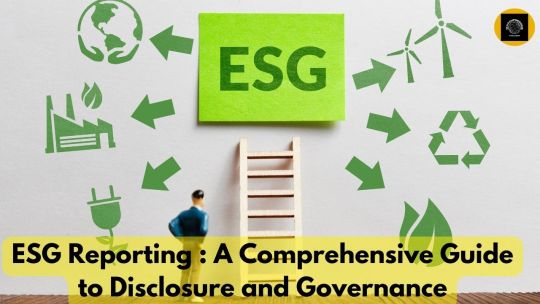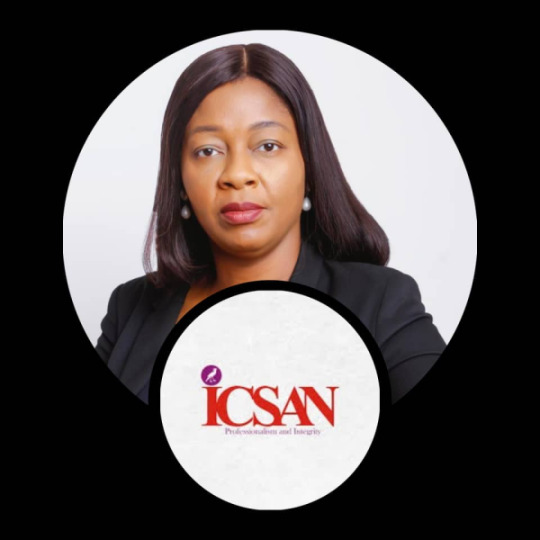#Corporate Governance
Text

#anti capitalist love notes#anti capitalism#healthcare#us healthcare#us health system#us health insurance#scam alert#dicipline#corporate governance#corporate greed#late stage capitalism#foolish
5 notes
·
View notes
Text
''60 years making peace through Law '' World Law Congress 2023.
The World Law Congress is a two-day event where global leaders, including heads of State, justices, policy makers, academics, lawyers, activists, and students, discuss a wide variety of current topics to which the legal community should propose solutions.
The Opening Session New York will serve as the framework for the in-person press presentation of the World Law Congress. The program includes a panel of discussion on Rule of Law, Corporate Governance & Climate Change as well as the bestowing of the WJA Medals of Honor to distinguished personalities.





#Rule of Law#Corporate Governance#Climate Change#jurists#WJA Medals of Honor#panel discussion#World law Congress#Department of Global Communications
2 notes
·
View notes
Link
4 notes
·
View notes
Link
Remember kids, if it's in the media, they want you to see it. He'll probably be moved to a position out the public eye and be replaced with someone else.
Anyone wanna take bets on his replacement? My money is on Elon Musk. 🤣
3 notes
·
View notes
Text
Enhance Business Stability with AOA Drafting Services
Business Stability with AOA Drafting Services: In today’s ever-changing business landscape, navigating the legal complexities can feel overwhelming. However, having robust legal counsel on your side is not a luxury, it’s a necessity. This is where Empower Legal steps in – a premier corporate law firm dedicated to empowering businesses to thrive. We offer unparalleled expertise in various legal…

View On WordPress
#AOA drafting services#AOA drafting services and corporate stability#AOA drafting services: A roadmap to business stability#AOA drafting services: Ensuring legal compliance for business stability#AOA services#Benefits of utilizing AOA drafting services for business stability#Best practices for ensuring business stability with AOA drafting services#Business continuity#Business optimization#Business process support#Business process support for maintaining stability with AOA drafting#Business stability#Compliance solutions#Corporate governance#Corporate governance and business stability with AOA drafting#Corporate Legal Support#Corporate stability#Document management#Drafting solutions#Enhance business stability#Enhancing business continuity with AOA drafting services#How can AOA drafting services#How can AOA drafting services be navigated for optimal stability outcomes?#How can AOA drafting services contribute to stability?#How can AOA drafting services enhance business stability?#How can business process support contribute to stability#How can compliance solutions ensure stability#How do AOA services align with corporate stability goals?#How do AOA services enhance business stability#How does AOA drafting address risk management for business stability?
0 notes
Text
Corporate Governance Concepts| Blog | Excellence Enablers
Explore our blog for quick reads on Corporate Governance Concepts. Gain expert insights and stay updated with the latest trends in the governance space. Visit our website for more https://excellenceenablers.com/blog/
0 notes
Text
How important is the G in ESG? Latest sustainable investment analysis from Robeco
“Robeco have reminded us that governance can seem neglected compared with the E and S in ESG, although it is actually everywhere and a necessary foundation for sustainable investment (SI) strategies.”
[COMMENTARY] Surely, governance is primary when it comes to running a company. The ‘E’ and ‘S’ in ESG are dependent upon the governance policies of a company. It’s good that Robeco reminds us of…
View On WordPress
0 notes
Text
How are the four players promoting Corporate Governance in Vietnam?
Which are the four players promoting #Corporate Governance in #Vietnam?
The National Assembly of Vietnam dramatically altered the paradigm in 1999 when it passed the legislation on enterprises, laying the foundation for domestic corporate governance. This drastic shift aided in the expansion of the private sector, creating more job possibilities in the process.
In Asia and globally, Vietnam has been considered a competitive source of profitable revenue generation…

View On WordPress
0 notes
Text
#Finance courses in Ahmedabad#Accounting#Corporate Governance#roles of accounting#Complex financial system#Financial Management#return filing#learning
0 notes
Text
ESG Reporting : A Comprehensive Guide to Disclosure and Governance

ESG (Environmental, Social, and Governance) is a term that has been gaining momentum in the business world. It refers to a set of standards that companies can use to measure their environmental, social, and governance impact. The concept of ESG is closely linked to sustainability, and it is becoming increasingly important for companies to report on their ESG performance. In this article, I will explore the various frameworks and standards that exist for ESG reporting and explain why they are important.
One of the key drivers of ESG reporting is the demand from stakeholders for greater transparency and accountability. Investors, customers, and employees are increasingly interested in the social and environmental impact of the companies they work for or invest in. As a result, companies are under pressure to disclose more information about their ESG efforts. In response to this demand, a number of reporting frameworks and standards have emerged, which I will discuss in more detail in the following sections.
Key Takeaways
ESG reporting is becoming increasingly important for companies as stakeholders demand greater transparency and accountability.
There are numerous frameworks and standards for ESG reporting, including the EU Sustainability Reporting Directive, the Global Reporting Initiative, and the Sustainability Accounting Standards Board.
ESG reporting can help companies improve their sustainability efforts, engage with stakeholders, and demonstrate their commitment to environmental, social, and governance issues.
Understanding ESG and Sustainability
As companies increasingly recognize the importance of environmental, social, and governance (ESG) factors in their operations, the need for a standardized framework for reporting on these issues has become more pressing. In this section, I will provide an overview of the evolution of ESG frameworks, the demand for ESG and sustainability reporting, and key ESG concepts and terminology.
Evolution of ESG Frameworks
Over the past few decades, there has been a growing recognition of the importance of ESG issues in business decision-making. As a result, various frameworks and standards have emerged to help companies report on these issues. One of the most widely recognized frameworks is the Global Reporting Initiative (GRI), which provides a comprehensive set of guidelines for sustainability reporting. Other frameworks include the Sustainability Accounting Standards Board (SASB), the Task Force on Climate-related Financial Disclosures (TCFD), and the United Nations Guiding Principles Reporting Framework.
In Europe, there has been a push towards more standardized sustainability reporting, with the introduction of the European Sustainability Reporting Standards (ESRS) and the Corporate Sustainability Reporting Directive (CSRD). These initiatives aim to improve the quality and comparability of sustainability reporting across the EU.
Demand for ESG and Sustainability
There is a growing demand from stakeholders, including investors, customers, and employees, for companies to disclose their ESG performance. This demand has been driven by a number of factors, including concerns about climate change, social justice issues, and corporate governance. In response, companies are increasingly adopting ESG strategies and reporting on their ESG performance.
Key ESG Concepts and Terminology
To effectively report on ESG issues, it is important to understand key concepts and terminology. Some of the most commonly used terms include:
Environmental: Refers to issues related to climate change, resource depletion, pollution, and other environmental impacts.
Social: Refers to issues related to labor practices, human rights, community engagement, and other social impacts.
Governance: Refers to issues related to board structure, executive compensation, shareholder rights, and other governance issues.
Other important concepts include sustainability, supply chain, carbon emissions, and stakeholder engagement.
In conclusion, understanding ESG and sustainability is becoming increasingly important for companies seeking to improve their environmental and social impact, as well as their governance practices. By adopting standardized reporting frameworks and disclosing their ESG performance, companies can demonstrate their commitment to sustainability and meet the growing demand from stakeholders for greater transparency and accountability.
Global ESG Reporting Frameworks
As the demand for ESG reporting increases, several frameworks have emerged to help companies report on their sustainability efforts. In this section, I will discuss three of the most widely recognized global ESG reporting frameworks: Global Reporting Initiative (GRI), Sustainability Accounting Standards Board (SASB), and Climate Disclosure Standards Board (CDSB).
Global Reporting Initiative (GRI)
The Global Reporting Initiative (GRI) is a widely used framework for sustainability reporting. The GRI Standards provide a comprehensive set of indicators that companies can use to report on their ESG performance. The framework covers topics such as governance, human rights, labor practices, environmental impact, and social responsibility. The GRI Standards are widely recognized and used by companies around the world.
Sustainability Accounting Standards Board (SASB)
The Sustainability Accounting Standards Board (SASB) is another widely used global ESG reporting framework. The SASB Standards provide a set of industry-specific sustainability accounting standards that companies can use to report on their ESG performance. The framework covers topics such as environmental impact, social capital, human capital, and business model and innovation. The SASB Standards are designed to be industry-specific, which makes them more relevant and useful for companies operating in specific sectors.
Climate Disclosure Standards Board (CDSB)
The Climate Disclosure Standards Board (CDSB) is a framework that helps companies report on their climate-related financial risks and opportunities. The CDSB Framework provides a set of guidelines that companies can use to report on their carbon emissions, climate-related risks, and opportunities. The framework is widely recognized and used by companies around the world.
In conclusion, these global ESG reporting frameworks provide companies with a structured approach to reporting on their sustainability efforts. By using these frameworks, companies can ensure that they are reporting on the most relevant ESG issues and providing stakeholders with accurate and reliable information.
Integrated Reporting and Financial Standards
As companies increasingly recognize the importance of disclosing their environmental, social, and governance (ESG) performance, there is a growing need for standardized reporting frameworks. Integrated reporting is one such framework that aims to provide a holistic view of a company’s performance by integrating financial and non-financial information.
International Integrated Reporting Council (IIRC)
The International Integrated Reporting Council (IIRC) is a global coalition of regulators, investors, companies, and standard-setters that promotes integrated reporting. The IIRC’s framework encourages companies to report on how they create value over the short, medium, and long term, and how their strategy, governance, performance, and prospects contribute to sustainable development.
The IIRC’s framework is based on six capitals: financial, manufactured, intellectual, human, social and relationship, and natural. By reporting on all six capitals, companies can provide a more complete picture of their performance and demonstrate how they are creating value for all stakeholders.
International Financial Reporting Standards (IFRS)
International Financial Reporting Standards (IFRS) are a set of accounting standards developed by the International Accounting Standards Board (IASB). IFRS are designed to provide a common global language for business affairs so that company accounts are understandable and comparable across international boundaries.
IFRS are used by more than 100 countries, including the European Union, Australia, and Canada. The IFRS Foundation is responsible for the governance and oversight of the IASB, and it works to promote the adoption of IFRS around the world.
IFRS are primarily focused on financial reporting, but they also include some requirements for non-financial reporting. For example, IFRS 7 requires companies to disclose information about their financial instruments, including their exposure to credit risk, liquidity risk, and market risk.
Overall, integrated reporting and IFRS are two important frameworks that can help companies improve their sustainability reporting and provide more transparency to stakeholders. By using these frameworks, companies can better understand their ESG impacts and make more informed decisions about how to improve their sustainability performance.
EU Regulations and Directives
As a reporter covering ESG and sustainability issues, it is crucial to understand the various regulations and directives that govern corporate reporting in the European Union. In this section, I will discuss three important directives that companies must adhere to: the EU Taxonomy, the Non-Financial Reporting Directive (NFRD), and the Corporate Sustainability Reporting Directive (CSRD).
EU Taxonomy
The EU Taxonomy is a classification system that defines which economic activities can be considered sustainable. It was created to help investors and companies understand what qualifies as environmentally sustainable, and to encourage investment in sustainable activities. The taxonomy covers six environmental objectives: climate change mitigation, climate change adaptation, sustainable use and protection of water and marine resources, transition to a circular economy, pollution prevention and control, and protection and restoration of biodiversity and ecosystems.
Non-Financial Reporting Directive (NFRD)
The Non-Financial Reporting Directive (NFRD) requires large companies in the EU to disclose information on their environmental, social, and governance (ESG) policies and performance. The directive applies to companies with more than 500 employees, or with a turnover of over €40 million and a balance sheet total of over €20 million. Companies must report on a range of ESG issues, including greenhouse gas emissions, energy use, employee diversity, and anti-corruption measures. The NFRD is currently under review, with proposed changes that would expand its scope and require companies to report on additional ESG issues.
0 notes
Text
Chioma Angela Okeke Assumes Chairmanship of ICSAN Abuja Chapter
We extend our heartfelt congratulations to Mrs. Chioma Angela Okeke, LLM, MBA, MCArb, FICMC, ACIS, PhD.c. on her appointment as the new Chairman of the Institute of Chartered Secretaries and Administrators (ICSAN), Abuja Chapter.
With a distinguished career spanning diverse fields, Mrs. Okeke brings a wealth of expertise and leadership to her new role. A seasoned lawyer by profession, she…

View On WordPress
#Chairmanship#Chioma Angela Okeke#Corporate governance#ICSAN Abuja Chapter#Leadership#Legal Profession
0 notes
Text
Uncover how company law shapes the realm of corporate governance, setting the rules for accountability, transparency, and investor protection.
0 notes
Text
Continuous Controls and SoD: Watchdogs Against Fraud and Regulatory Woes
With over 60% of South African organisations admitting that they’ve been the targets of economic crimes and fraud, enterprises must adopt a proactive stance to protect themselves. Robust strategies such as Segregation of Duties and Continuous Control are critical to effectively thwarting fraud attempts and ensuring adherence to regulatory standards.
With fraudsters continuously evolving their…

View On WordPress
0 notes
Text
"Lifetime Investor" by Yoshiaki Murakami

Yoshiaki Murakami wrote a book titled "Lifelong Investor" that describes his experience and investing philosophies.
It is well known that Murakami was previously detained and found guilty of insider trading in stock of the Nippon Broadcasting System. But underlying all of this was his profound understanding of Japanese company management and his firm confidence in investing.

The book describes Murakami's motivation for entering the investment sector, his past endeavors, and his perspective on Japanese businesses—particularly those that are publicly traded. It also discusses his leadership of the Murakami Fund, his investing style, and his goals for the advancement of Japan's economy.

Anyone interested in investing will find this book to be very helpful, especially if they want to learn more about company governance and corporate management. However, it is advised that you actually read this book in order to get the details.
#Investment#Economy#Corporate Governance#Investment Philosophy#Japanese Company#Management#Investment Style#Economic Growth#Investment Goal#Insider Trading#Investor#Business Book#Economic Book#Book Lover#Investment Introduction
1 note
·
View note
Text
Corporate Secretarial Services
Welcome to LawFT Where Your Business Finds a Trusted Companion for Corporate Secretarial Services or Company Secretary Services across India.
At LawFT we understand that running a business is more than just numbers and legal jargon. It’s about the people behind it, the dreams they chase, and the communities they serve. Led by Ajit Bistangoudar, our team is here to be your ally, your guide, and your friend in navigating the complexities of corporate governance
What Exactly Are Corporate Secretarial Services?
Think of Corporate Secretarial Services or Company Secretary Services as your business’s guardian angel, ensuring that you stay on the right side of the law while focusing on what truly matters – building your vision. We take care of all the nitty-gritty details of corporate compliance so that you can devote your energy to steering your company towards success
1 note
·
View note
Text
Succession planning services | Excellence Enablers
Elevate your business future with leading succession planning consulting firms Excellence Enablers in India. Our experts provide the solution for strategic leadership continuity, empowering your organization for future success. Click here to know more:https://excellenceenablers.com/services/succession-planning/
0 notes